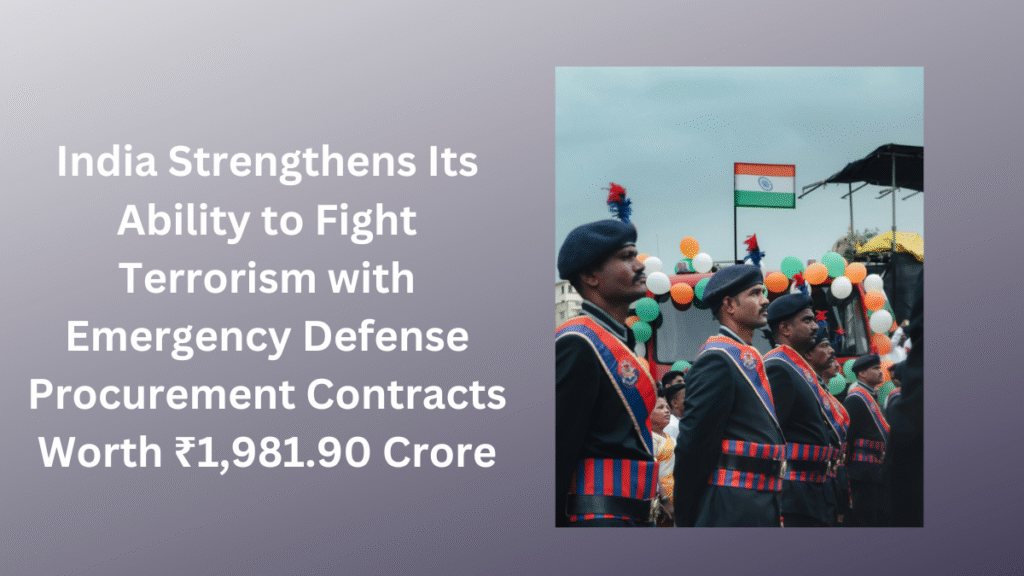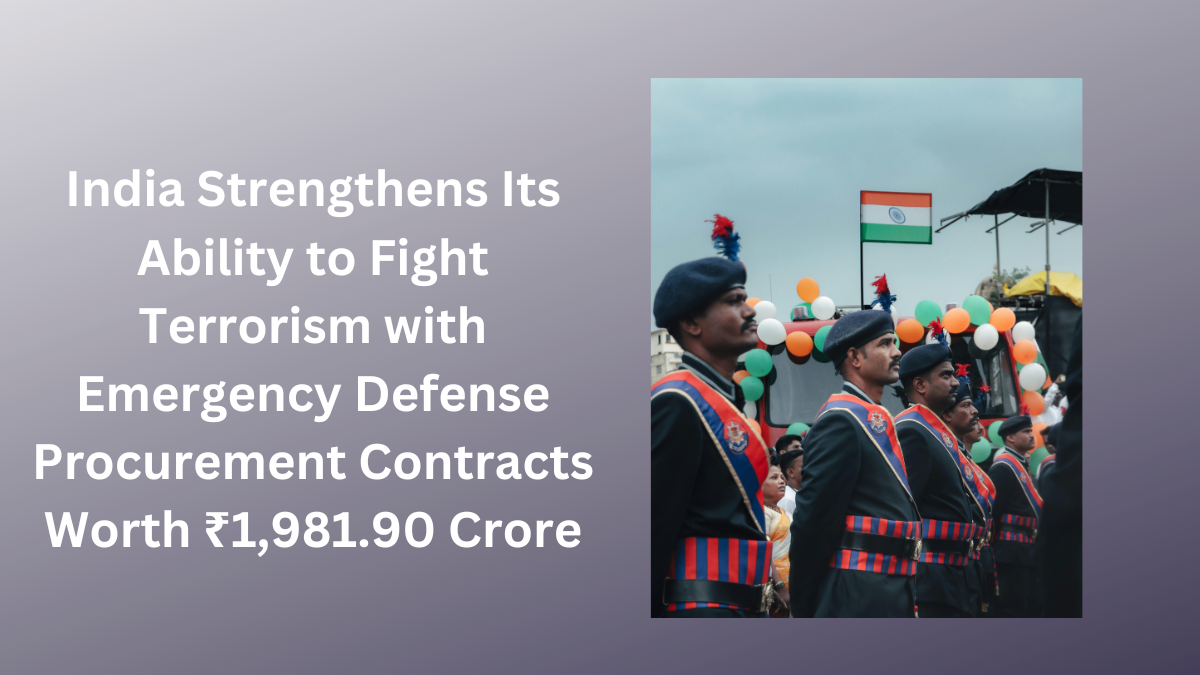India Strengthens Its Ability to Fight Terrorism with Emergency Defense Procurement Contracts Worth ₹1,981.90 Crore
Date: June 24, 2025
Place: New Delhi | Source: PIB
The Ministry of Defence (MoD), Government of India, has signed thirteen emergency procurement contracts under the Emergency Procurement (EP) mechanism. This is a big step in making the Indian Army more ready for counter-terrorism (CT) operations. The total value of these contracts is ₹1,981.90 crore. They are meant to improve the Army’s ability to deal with new and changing challenges in counter-terrorism (CT) scenarios.
This milestone shows that India is still committed to quickly giving its military the latest, most important technology and equipment. The procurement has been done using a “fast-track” process, which makes sure that the purchases are finished quickly so that they may be put to use right away and improve their capabilities.
🚨 Quickly Modernize the Defense for CT Operations
The contracts were approved for a total of ₹2,000 crore, making this one of the biggest emergency purchases in recent years. The EP route was turned on to “fill urgent capability gaps,” especially in places and situations where counter-terrorism operations are common and frequently unforeseen.
The Ministry has used the emergency procurement authority to help the Indian Army get “state-of-the-art equipment” that makes troops more aware of their surroundings, moves them more quickly, increases their lethality, and protects them better in high-risk operations areas.

🔍 Key Equipment Bought
As part of the ₹1,981.90 crore package, the following high-priority equipment and gear have been procured to empower personnel deployed in critical CT environments:
- Integrated Drone Detection and Interdiction Systems (IDDIS)
- Low Level Lightweight Radars (LLLR)
- Very Short Range Air Defence Systems (VSHORADS) – Launchers and Missiles
- Remotely Piloted Aerial Vehicles (RPAVs)
- Loitering Munitions, including Vertical Take-Off and Landing (VTOL) systems
- Various categories of drones for surveillance and operational engagement
- Bullet Proof Jackets (BPJs)
- Ballistic Helmets
- Quick Reaction Fighting Vehicles (QRFVs) – both Heavy and Medium variants
- Night Sights for Rifles for enhanced nighttime engagement
These purchases are meant to meet the Indian Army’s “operational requirements in asymmetrical warfare,” particularly in regions where insurgency is common and real-time situational awareness and fast tactical reaction are very important.
Indigenization and Strategic Readiness
The focus on indigenous defense manufacturing is a key part of this procurement push. Most of the systems bought are either made in India or made with a lot of help from Indian companies, which fits with the government’s “Atmanirbhar Bharat” (Self-Reliant India) concept.
This action shows that the Ministry is committed to provide the Army “modern, mission-critical technologies” while also “boosting the Indian defense manufacturing ecosystem.”

🛡️ Quickly and Accurately Dealing with New Threats
The emergency procurement contracts are not only a strategic move; they also show how India’s security situation is changing. As the global threat environment becomes increasingly mixed and unpredictable, timely inductions are very important for ensuring operational readiness and combat superiority.
The EP route was developed to allow for speedier decision-making and procurement outside of normal time frames. This makes it a “vital enabler” for dealing with new threats and problems on the battlefield.
📌 Conclusion
The Ministry of Defence’s signing of 13 emergency procurement contracts worth ₹1,981.90 crore sends a clear message that India is committed to keeping its armed force “highly agile, well-equipped, and future-ready.” The Indian Army is facing more and more complicated counter-terrorism operations, so this acquisition push makes sure they have the tools, equipment, and protection they need to do their jobs well and safely.
This is more than simply a defense agreement; it’s a big step toward strategic autonomy, national security readiness, and technological sovereignty.
As supplies and deployments start around the force, stay tuned for additional information.
